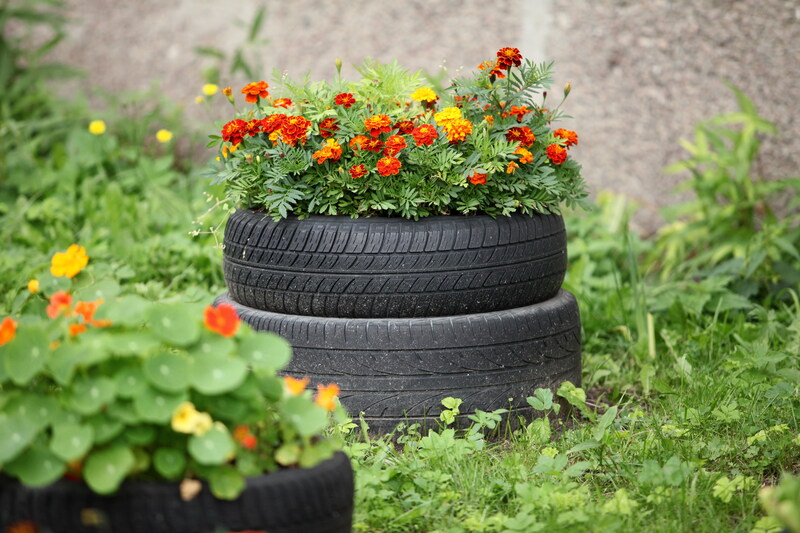Posted on 06/03/2024
In a world where the effects of climate change and environmental degradation are becoming increasingly evident, it is more important than ever for cities to prioritize sustainability and green spaces. The UK has been at the forefront of this movement, with many of its cities taking significant steps towards creating more environmentally-conscious urban spaces. In this article, we will explore some of the top cities in the UK that are leading the way in terms of green initiatives and eco-friendly living.
1. Bristol
Nestled in the South West of England, Bristol has been making waves in the sustainability scene for quite some time now. In 2015, it was named the first European Green Capital and continues to be a shining example of what can be achieved when a city puts environmental concerns at the forefront. With over 400 parks and open spaces, including the beautiful Ashton Court Estate and Ashton Court Park, Bristol offers its residents plenty of opportunities to connect with nature. The city also has ambitious plans to become carbon neutral by 2030, which includes implementing more cycle lanes, expanding public transportation, and promoting energy-efficient buildings.

2. Brighton
Located on the south coast of England, Brighton is another city that has made great strides towards becoming greener and more sustainable. One of its most notable features is its extensive network of cycle paths, which are used by nearly 80% of its residents for daily commuting. In addition to this, Brighton also boasts several community gardens and allotments where locals can grow their own produce in an environmentally-friendly manner. The city also hosts an annual Eco Summit that brings together businesses, organizations, and individuals to share ideas on how to create a more eco-friendly place to live.
3. Manchester
Often overshadowed by its neighbor Liverpool, Manchester is quickly emerging as one of the greenest cities in the UK. It has invested heavily in renewable energy sources such as wind power and biomass energy, reducing its reliance on fossil fuels and decreasing its carbon footprint. Manchester also has over 140 parks, including the world-renowned Heaton Park, providing residents with plenty of green space to enjoy. The city has set itself the goal of becoming a zero-carbon city by 2038 and is already making significant progress towards achieving this target.

4. Sheffield
Known as the "Outdoor City", Sheffield's commitment to sustainability is evident in its vast outdoor spaces and parks. It is home to the largest urban forest in Europe and boasts over 200 parks, providing its residents with ample opportunities for outdoor recreation. In addition to this, Sheffield has implemented innovative initiatives such as a district heating system that uses waste heat from the city's incinerator to heat buildings, reducing carbon emissions by thousands of tonnes each year.
5. Edinburgh
The capital city of Scotland, Edinburgh may be best known for its historic architecture and cultural landmarks, but it also has a growing reputation for being environmentally-conscious. It has set itself the target of becoming carbon neutral by 2030 and has taken several steps towards achieving this goal. One of these steps includes implementing a Low Emission Zone in the city center, restricting high-polluting vehicles from entering. Edinburgh also offers residents numerous green spaces, with over 35% of the city dedicated to parks and green areas.
Pros and Cons:
While these cities have certainly made great strides towards creating more sustainable and eco-friendly urban spaces, there are still challenges that they face. One of the main drawbacks is that many of these initiatives require significant investments, which can be difficult for some cities to afford. In addition, there may also be resistance from certain groups or individuals who may not see the importance of investing in green initiatives.
Tips:
- Get involved: Most cities have community groups or organizations dedicated to promoting sustainability and protecting green spaces. Joining one of these groups is a great way to stay informed about local initiatives and get involved in making a positive impact.
- Use public transportation: Instead of driving a car, consider using public transportation or cycling to reduce your carbon footprint. Many cities have made significant improvements to their public transport systems and offer bike-sharing programs, making it easier for residents to choose eco-friendly options.
Takeaways:
- Green spaces have numerous benefits, including improving air quality, promoting physical and mental well-being, and providing habitats for wildlife.
- Small steps can make a big difference: Whether it's recycling, using reusable bags, or choosing to walk instead of drive, every little action towards sustainability counts.
Conclusion:
The UK is home to some of the most environmentally-conscious cities in the world, with each one taking unique approaches towards creating more sustainable urban spaces. From investing in renewable energy sources to promoting green transport options and preserving natural areas, these cities are setting an example for others to follow. By prioritizing sustainability and working together as communities, we can create greener and healthier places to live for ourselves and future generations.
Latest Posts
Tips for Proper Disposal of Regular Waste
Garbage Cleanup Bags - Efficient Skip Substitute

































 Get a Quote
Get a Quote